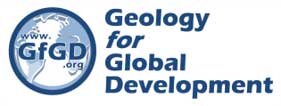The Sustainable Geoscience Award at the University of Hull
During the 2020/21 year the Department of Geography, Geology and the Environment at the University of Hull ran a “Sustainable Geoscience Award” to reward their students for engaging with optional content created with the Higher Education Learning Resources provided by GfGD. Earth Science Lecturer Dr Natasha Dowey explains:
At Hull, we had been discussing how to bring in more content on sustainable development into our undergraduate Earth Science programme for a while; but time and resources, particularly during the pandemic, were tight. When GfGD released their new Geoscience and Sustainable Development HE teaching resources in September 2020 it was the perfect catalyst for us to adapt our existing modules, by integrating the themes, tasks and resources provided by GfGD into our existing modules.
First, we assessed where the synergies were with our current teaching and drew up a grid of which of the 8 GfGD classes most closely aligned to which of our modules. Some classes aligned to multiple modules (for example, Class 3 Decarbonisation fits with both Igneous and Metamorphic Geology for mining elements, and with Earth Resources for renewable energies and CCS), in some cases across multiple levels of the degree programme (for example Class 4 Geoscience and Disaster Risk Reduction fits with both 2nd year Geohazards and 3rd year Volcanoes and their Hazards). We adapted the classes to match the level of study, and adapted the activities to allow for online submission.
“We weren’t sure how many students would be keen to engage with optional content. But the submissions demonstrated excellent engagement with the tasks.“
We chose to include sustainability tasks as optional formative assessments. Each module was assigned a task, such as contribution to an online discussion board, and on submission of the work a digital badge is automatically added to the student’s record. At the end of the degree, if the student collects all the badges, they will be presented with a “Sustainable Geoscience Award”.
During the difficult conditions of the 2020/21 academic year, with many students working completely online and less contact time than usual, we weren’t sure how many students would be keen to engage with optional content. But the results were very encouraging. The work involved submitting to an online discussion board to gain the digital badge, and the submissions demonstrated excellent engagement with the tasks.
“The award allowed us to showcase Earth Science as a more sustainable option, both internally within our university, and externally to potential new students via our website. The Sustainable Geoscience Award has been formally embedded into Hull’s new Earth Science programme. “
The use of the GfGD materials and the creation of the Sustainable Geoscience Award acted as an easy-to-implement starting point for us to develop discussions around sustainable development with Earth Science students. It increased student awareness of the SDGs, and allowed them to work towards something that would look great on their CV.
As well as this, the creation of the award allowed us to showcase Earth Science as a more sustainable option, pushing back against traditional perceptions of the subject, both internally within our university, and externally to potential new students via our website. Hull is currently undergoing a programme transformation process, and the Sustainable Geoscience Award has been formally embedded into Hull’s new Earth Science programme for entrants from September 2021 onwards. It is something that Hull can go on to develop with in-house resources, and more hand-on activities when students return in person. GfGD provided a crucial way for the team to get this process started with their high quality materials and activities curated by experts in the field.
This case study is written by Dr Natasha Dowey, who was an Earth Science Lecturer at the University of Hull from 2019 to 2021. She is now a Lecturer at Sheffield Hallam University. Feel free to get in touch with Natasha on Twitter if you would like to know more about this case study.


